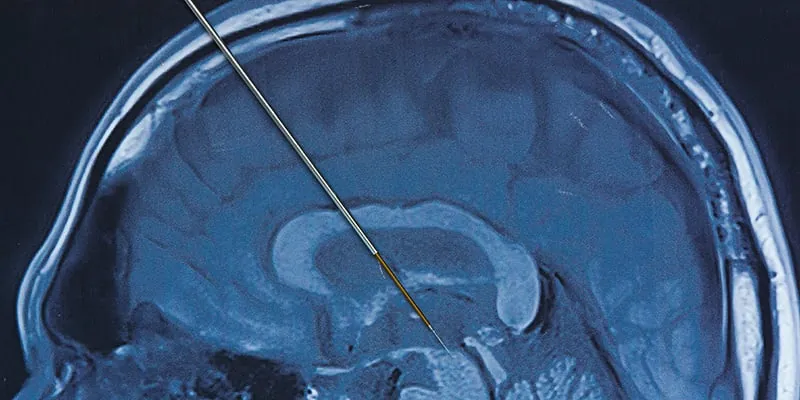
Urgent Steps Needed to Transform Alzheimer’s Disease Research: New Report Unveils Key Priorities!
2024-12-17
Author: Rajesh
Introduction
In a groundbreaking report released by the National Academies of Sciences, Engineering, and Medicine, critical research priorities have been identified for the National Institutes of Health (NIH) as they aim to tackle Alzheimer’s disease and related dementias (AD/ADRD) over the next decade. With the daunting rise of dementia cases linked to an aging population, families and communities are bracing for an emotional and financial burden that could escalate to unprecedented levels.
Collaborative Approach to Research
The report underscores the necessity of a collaborative and multidisciplinary approach to dismantle the existing barriers within NIH. By blending insights from various fields of study, researchers can more effectively address the complex nature of dementia, including conditions like vascular dementia, frontotemporal dementia, and Lewy body dementia. This integrated strategy should encompass both pharmacological innovations and nonpharmacological therapies, signaling a comprehensive shift in how dementia is understood and treated.
Calls for Urgent Change
Tia Powell, the committee chair and a noted professor at Albert Einstein College of Medicine, emphasized the urgency of this transition: "Despite significant investments over the past decade leading to scientific breakthroughs, the sad truth remains that viable interventions for preventing or curing AD/ADRD are still lacking." She highlighted the pressing need for effective treatments that could greatly enhance the quality of life for those affected by dementia.
Reshaping Research Priorities
Victor J. Dzau, president of the National Academy of Medicine, added that reshaping research priorities and fostering an environment of collaboration is paramount. "The changes made today in how we conduct research could propel us into a future with hopeful breakthroughs that would transform the lives of patients and their families," Dzau stated.
Focus on Mixed Dementia
One of the significant revelations from the report is the focus on mixed dementia, which is believed to impact a majority of dementia cases in individuals over 65. This type of dementia arises when two or more dementia-related pathologies coexist, challenging the traditional framework of researching these diseases in isolation.
Strategies for Effective Treatment Development
To expedite the development of effective treatments, the report calls for innovative funding strategies and other motivators to encourage cooperation across various research entities. Promising models such as multi-institute research consortia and public-private partnerships have already demonstrated the potential to enhance coordination and streamline data sharing.
Conclusion
In summary, the urgency for transformative change in Alzheimer’s disease research is clear. As experts call for unprecedented collaboration and innovative approaches, the hope remains that the next decade could usher in significant advancements that will truly benefit individuals grappling with dementia and their loved ones. If we act now, we could be on the brink of a breakthrough that many have long awaited!






 Brasil (PT)
Brasil (PT)
 Canada (EN)
Canada (EN)
 Chile (ES)
Chile (ES)
 España (ES)
España (ES)
 France (FR)
France (FR)
 Hong Kong (EN)
Hong Kong (EN)
 Italia (IT)
Italia (IT)
 日本 (JA)
日本 (JA)
 Magyarország (HU)
Magyarország (HU)
 Norge (NO)
Norge (NO)
 Polska (PL)
Polska (PL)
 Schweiz (DE)
Schweiz (DE)
 Singapore (EN)
Singapore (EN)
 Sverige (SV)
Sverige (SV)
 Suomi (FI)
Suomi (FI)
 Türkiye (TR)
Türkiye (TR)